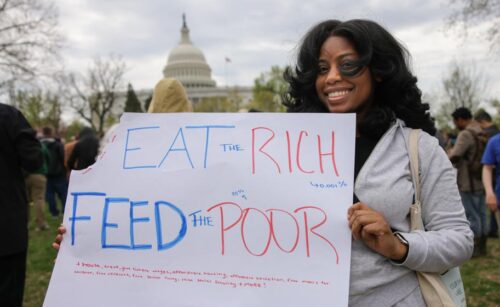The Trump administration told Harvard University in a letter last week that it was revoking the Ivy League school’s ability to enroll international students, citing what the Homeland Security secretary called “an unsafe campus environment’’ that is hostile to Jewish students, supports Hamas, and promotes “racist’’ DEI initiatives.
Harvard has denied fostering such an environment and recently issued reports on antisemitism and Islamophobia that included recommendations such as expanding academic offerings on antisemitism and Jewish history; providing legal support to students facing harassment for being pro-Palestinian; and defining and denouncing bias against Arabs, Muslims, and Palestinians.
Last week, the university denounced the Trump administration’s announcement, saying: “This retaliatory action threatens serious harm to the Harvard community and our country.’’
On Friday, a federal judge in Boston temporarily blocked the ban on foreign student enrollment.
Here’s what is going on.
What program is being targeted?
Homeland Security Secretary Kristi Noem wrote in the letter that the administration had revoked Harvard’s ability to enroll noncitizens in its Student and Exchange Visitor Program.
That program is overseen on campuses across the country by the federal government, per the ICE website, which says it “collects, maintains, analyzes and provides information so only legitimate foreign students or exchange visitors gain entry to the United States.’’
The program also ensures that schools “accepting nonimmigrant students are certified and follow the federal rules and regulations that govern them,’’ the site says.
What rules do federal officials accuse Harvard of breaking?
Noem cited what she said was the antisemitic and pro-Hamas sentiments at Harvard, an apparent reference to demonstrations on campus last year protesting Israel’s war in Gaza.
Specifically, Harvard is being sanctioned for its failure “to comply with simple reporting requirements,’’ including turning over records related to international students’ “misconduct and other offenses’’ that would render them “inadmissible or removable,’’ Noem said.
When does this take effect? What happens to international students?
Noem said the prohibition on international students will take effect in the 2025-26 academic year, which starts next fall.
Current international students on campus will have to “transfer to another university in order to maintain their nonimmigrant status’’ to remain in the country, Noem said.
The judge’s ruling has put that on hold.
Does Harvard have options?
Noem wrote that Harvard can have its ability to enroll international students restored if it turns over a number of records to the government.
Those records include any and all footage in the school’s possession of “protest activity’’ involving international students in the last five years; any international student disciplinary records over that time frame; any and all footage of international students engaged in “deprivation of rights’’ of classmates or staff on or off campus; and any records of threats, violence, or illegal activity by international students.
How many students at Harvard could this affect?
The latest count of degree-seeking international students at Harvard was 6,793 for the current academic year, according to university data. International students make up more than 27 percent of the university’s total enrollment.
The share has climbed steadily since the 2006-07 academic year, aside from a dip during the COVID-19 pandemic.
Has Harvard responded?
Shortly after the letter came to light in a New York Times report and Noem posted a copy of the letter on social media, Jason Newton, a university spokesman, said the government‘s move “is unlawful.’’
On Friday, the school filed suit, saying the ban was “a blatant violation of the First Amendment, the Due Process Clause, and the Administrative Procedure Act.’’
US District Court Judge Allison D. Burroughs in Boston ordered the administration to temporarily halt enforcement of the ban while litigation proceeds.
Harvard calls the move unlawful. Is it?
Lawyers interviewed by the Globe Friday, including those who teach at Harvard and others who are not affiliated with the case, agreed with the university that the administration’s action appeared illegal.Jodie Ferise, a former general counsel at the Independent Colleges of Indiana and former chief international officer at the University of Indianapolis, called the revocation of foreign student enrollment “serious government overreach.’’
“If they just have authority to do that, then I don’t know how that differentiates us from an authoritarian regime,’’ Ferise said. “‘You bend to our will, or we will revoke this program.’ That’s pretty authoritarian.’’
The federal government defended what it described as a legitimate use of executive authority. Harvard’s lawsuit, said Tricia McLaughlin, a spokesperson for the Department of Homeland Security, “seeks to kneecap the President’s constitutionally vested powers under Article II. We have the law, the facts, and common sense on our side.’’
Yoohyun Jung of the Globe staff contributed to this report.
